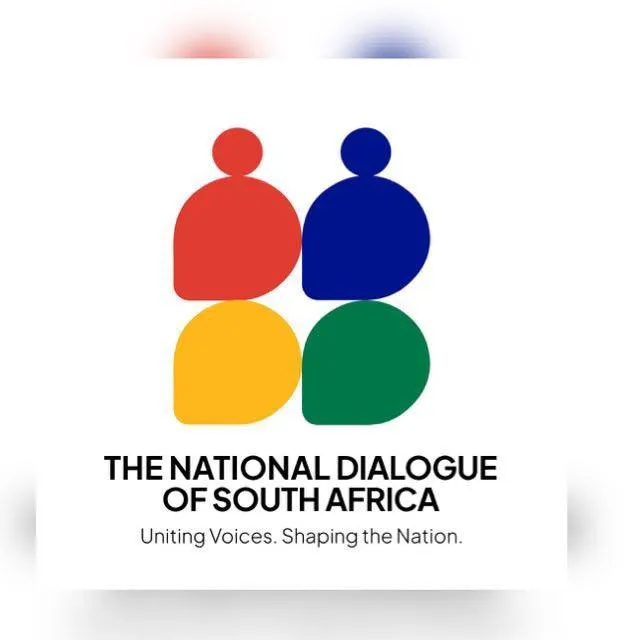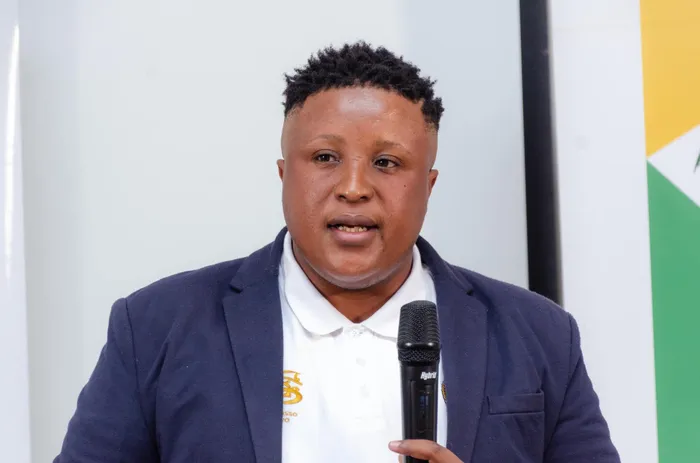National Dialogue or National Waste? South Africa should learn from China’s digital dialogue success
NATIONAL DIALOGUE

As South Africa gears up for its much-talked-about National Dialogue, set to kick off with a costly convention this week, one cannot help but wonder why the government insists on pouring millions into fancy gatherings when China has shown a smarter, cheaper way to gather public input through simple online platforms, especially when lessons from the COVID-19 era prove that virtual engagement is not only possible but effective for all South Africans.
Image: File photo
By Edgar Legoale
As South Africa gears up for its much-talked-about National Dialogue, set to kick off with a costly convention this week, one cannot help but wonder why the government insists on pouring millions into fancy gatherings when China has shown a smarter, cheaper way to gather public input through simple online platforms, especially when lessons from the COVID-19 era prove that virtual engagement is not only possible but effective for all South Africans.
The high cost of South Africa’s talk shop
President Cyril Ramaphosa announced the National Dialogue in his 2025 State of the Nation Address, painting it as a grand coming-together of government, political parties, civil society, business, labour, traditional leaders, women, youth, and community voices to shape the country’s vision for the next 30 years. It sounds noble, a chance to rebuild trust after years of division and economic woes. The first step, the National Convention, runs from 15 to 17 August 2025 at the University of South Africa in Pretoria, bringing in about 1 000 delegates to set the agenda. But here’s the thing: the whole process is budgeted at a whopping R700 million, a figure that has sparked outrage across the board.
The Economic Freedom Fighters (EFF) and ActionSA leader Herman Mashaba, have slammed it as outrageous and wasteful, especially when South Africans are battling a brutal cost-of-living crisis, high unemployment, and rising crime. Mashaba called it a “wasteful exercise,” and many agree, pointing out that we already know the problems – poverty, inequality, corruption, and poor service delivery – without needing expensive talk shops. Even seven leading foundations pulled out, citing rushed planning and a loss of citizen focus, while others label it a sham funded by foreign donors to create fake legitimacy. Ramaphosa has promised to scale down costs, but with the convention going ahead as planned, it’s hard to see how much will really change. The Presidency clarified that costs cover logistics like venue hire, transport, and catering for delegates, but in a country where millions go hungry, spending big on hotels and flights feels tone-deaf.
This isn’t just about money; it’s about exclusion. With only 1 000 spots at the convention, how many ordinary voices from rural areas or townships will truly be heard? The process claims to be inclusive, but many people argue it’s putting the cart before the horse, ignoring the need for a clear follow-up to the National Development Plan and risking political point-scoring in the Government of National Unity (GNU). This isn’t the first time we’ve seen such initiatives; think of the Codesa talks in the 1990s. But today, with digital tools at our fingertips, why stick to outdated, pricey methods? I believe this is how it must be done: redirect that R700 million to something tangible, like kick-starting the long-overdue Fezile Dabi University in Parys or Sasolburg, which could transform education and job opportunities in the Free State’s Fezile Dabi District. The district’s Integrated Development Plans highlight the need for higher education infrastructure, and with costs for building a university campus potentially starting in the hundreds of millions, this funding could lay the foundation for a facility offering programmes in key areas like engineering and agriculture, benefiting underserved communities.
Lessons from COVID-19: We went online then, why not now?
If there’s one thing the COVID-19 pandemic taught us, it’s that South Africans can adapt to online ways of connecting and sharing ideas. During those tough times from 2020 to 2022, everything shifted virtual – schools held classes on Zoom, businesses ran meetings via Microsoft Teams, and even government consultations happened through webinars and apps. Millions of us were glued to our screens, participating in national dialogues on health, economy, and recovery plans without leaving home. Platforms like WhatsApp groups, Facebook Live, and government portals allowed widespread input on issues like vaccine rollout and economic stimulus. Why not apply the same now for the National Dialogue? It was proven effective, cost nothing extra, and reached people in remote areas with just a smartphone and data. I believe this is how it must be done: embrace the digital shift we mastered during COVID to make consultations truly accessible and affordable, avoiding the waste we’re seeing today.
China’s smart, low-cost approach to public input
Contrast this with China, where the government just wrapped up a massive online consultation for its 15th Five-Year Plan, set to run from 2026 to 2030. They collected over 3,113,000 suggestions from citizens – three times more than the previous plan in 2020 – all through free, accessible digital platforms. No lavish conventions, no delegate flights or catering bills; just websites like People’s Daily, Xinhua, and CCTV, plus local government portals and the “Study to Strengthen the Nation” app. This app alone, launched in 2019, has 345 million registered users and sees 700 million daily visits, offering free content like books, courses, and news while letting people submit ideas easily.
The consultation ran from 20 May to 20 June 2025, covering topics from tech innovation and diplomacy to education, employment, rural development, and environmental protection. Real people shared practical ideas: one user suggested stronger tobacco control with better signs and reporting channels, noting China’s 23.2% smoking rate and the dangers of secondhand smoke. Another called for stricter food safety oversight, banning harmful pesticides and setting up traceability systems from farm to table. A third worried about student loans with high interest rates, urging restrictions to protect young people from debt traps. And someone pushed for more child-rearing subsidies, like tax deductions and better maternity insurance for informal workers.
President Xi Jinping hailed it as “exemplary practice of comprehensive process popular democracy,” urging deep listening to the masses to build a better life. Suggestions were capped at 4 000 words, with an email option for longer ones, making it simple and inclusive. This digital method reached millions without wasting a cent on venues or travel, proving that broad participation doesn’t need big budgets.
Why not go digital like China?
The comparison is stark. China’s approach is modern, efficient, and truly mass-based, harnessing technology to gather wisdom from everyday folks. South Africa’s National Dialogue, while well-intentioned, risks becoming another talk fest that drains public funds without delivering real change. We’ve got the tools – think of apps like the eNatis system or even social media platforms where South Africans already voice their views daily. Why not create a free online portal for suggestions on our national priorities, linked to government websites and apps? It could cover everything from job creation and crime-fighting to education and healthcare, reaching far more people than a Pretoria convention ever could. I believe this is how it must be done: follow China’s lead by launching a dedicated app or website for ongoing public input, ensuring every submission is tracked and responded to, turning dialogue into action.
For instance, the Central University of Technology (CUT) in the Free State has its own innovation hub, including the Centre for Rapid Prototyping and Manufacturing (CRPM), which is a leading research and innovation centre in advanced manufacturing and 3D printing. They could easily develop or host such a digital platform for free, leveraging their expertise in technology and innovation to create a user-friendly tool that collects suggestions nationwide without any cost to the government.
To make it even more accessible, we can involve major banks like FNB, Standard Bank, Absa, Nedbank, and Capitec to come on board. Surely, these banks can do this for free as part of their corporate social responsibility – featuring a dialogue link or dedicated tab in their apps where users can submit ideas after logging in securely. Millions of South Africans already use banking apps daily for transactions, so adding a simple submission form for national suggestions would reach a massive audience without extra development costs. Other ways to expand this include partnering with telecom giants like Vodacom, MTN, and Telkom to integrate submission features in their customer apps or via SMS portals for those without smartphones. Government services apps, such as the SASSA grant app or the Home Affairs e-services platform, could also host tabs for input, ensuring even the most vulnerable participate.
Universities and tech hubs across the country, like those at Wits or UCT, could contribute by creating open-source tools or hosting virtual town halls. Social media integrations, such as WhatsApp bots or Facebook forms, would allow quick submissions, while community radio stations could promote SMS-based inputs for rural areas. I believe this is how it must be done: build a multi-platform ecosystem that combines free tech from institutions like CUT’s innovation hub, bank apps for secure access, and everyday tools like telecom and social media to make the dialogue truly inclusive and cost-effective.
Is it because our leaders fear losing control in a digital space, or perhaps because physical events allow for patronage and photo ops? Or maybe it’s just old habits dying hard in a bureaucracy that’s slow to embrace tech.
Whatever the reason, pouring R700 million into this – even if scaled down – feels like a slap in the face to struggling taxpayers. China shows it’s possible to consult widely without breaking the bank, fostering “popular democracy” that feels genuine and actionable.
South Africa, it’s time to wake up. Why waste millions on dialogues that exclude most of us when a digital revolution could include everyone? Adopt China’s model, save the money for real fixes like building Fezile Dabi University or hiring more police, and let the people’s voices flow freely online. Anything less is just more empty promises in a country that can no longer afford them.

Edgar Legoale is chief servant at Edgar Legoale Foundation | Activist | Media Consultant | PR and Communications Strategist | Crisis Comms Expert.
Image: Supplied
* Edgar Legoale is chief servant at Edgar Legoale Foundation | Activist | Media Consultant | PR and Communications Strategist | Crisis Comms Expert.
** The views expressed do not necessarily reflect the views of IOL or Independent Media.
BUSINESS REPORT